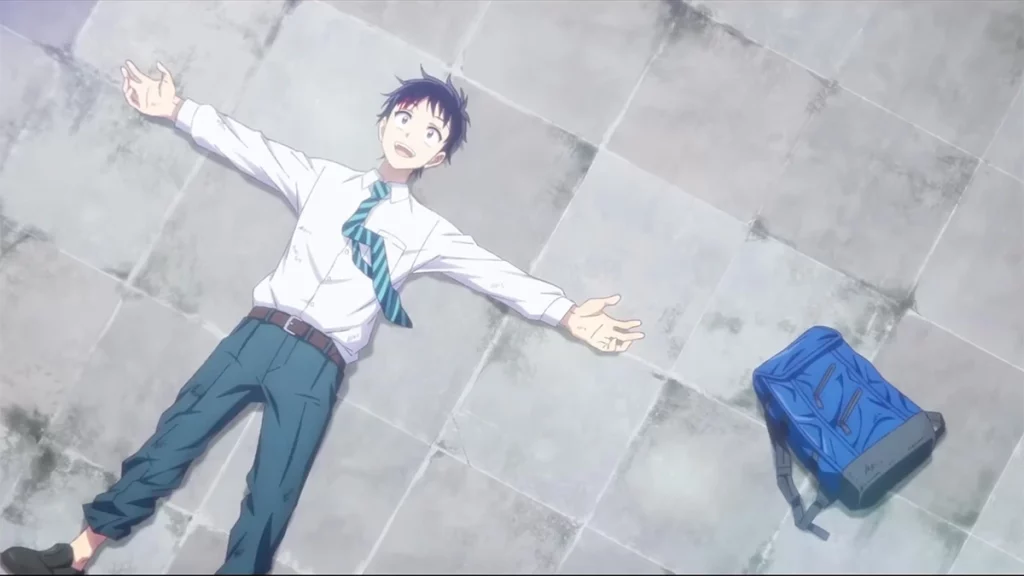'The Invisible Man' (2020): The Hiddenness of Domestic Abuse
The 2020 remake of 'The Invisible Man' explores the hidden nature of domestic violence with a classic sci-fi character.


In another adaptation about a zombie apocalypse, Haro Aso, critiques late-stage, predatory capitalism. The unique twist being that the zombies themselves are not the metaphorical vehicle, but rather the freedom they inadvertently provide in the comedy horror. The anime is based on the manga, Zom 100: Bucket List of the Dead.
The story follows Akiro Tendo, an overworked office worker who seems to be based on the infamous issues of game developers and manga artists in Japan and worldwide working for long hours without proper rest to meet deadlines. Manga burnout is frequently reported on and is just one facet of predatory capitalism.
Tendo is shown working extensive hours to the point where he sometimes sleeps at work for days at a time. This is related to the poor sleep schedules of many manga artists, like Masashi Kishimoto, author of Naruto, and of game developers experiencing crunch, the latest nonsense term in capitalism for the cruel, unrealistic demands and unsatisfactory pay of workers.
There is a long list of such terms, like quiet quitting, which is intellectually known as meeting your job requirements and not going beyond them without proper compensation. Career cushioning has been bandied about, which again was previously just the idea of having a Plan B in case something happens to your job/main source of income. There was even a weird push for the term resenteeism, a portmanteau of resentment and presenteeism (itself a portmanteau of present and abseenteeism that refers to how many workers are forced to work when sick or mentally compromised), used to describe unhappy workers who stay in jobs and somehow let people know they are not happy. If these terms seem silly, it’s because they are, they are pro-capitalists trying to reframe normal behaviors into buzzwords. They couple these buzzwords with media outlets that propagate capitalism by default and attempt to shame workers into more traditional compliance. Despite all evidence to the contrary, pro-capitalists continue to espouse the system that continues to widen the inequality gap and lower the quality of life for the 99%. Note how most articles and media outlets immediately jump to a spin about how these actions “hurt” businesses.
In Zom 100, Tendo literally falls asleep wishing that he could just sleep. He considers suicide within the first episode so that work will no longer be a concern. All the employees at his office are in this bizarre cycle of years of mundane, mentally draining work that leaves them no time for their own lives. Tendo and his co-workers suffer health problems related to “living to work.” Add in working multiple jobs and still barely scraping by, and you have the reality of a lot of American workers. Many of us dream of a break in the system, some shock that goes beyond disrupting the status quo and literally topples predatory capitalism.

In Zom 100, that system break comes in the form of a zombie apocalypse. When Tendo realizes he is being chased by zombies, he actually rejoices. He won’t have to go to work. He gets a day off! Slowly, as he runs from the blood-crazed zombies, he notices colors again in his previously drab grey world. The sky is blue, the sun is yellow, and his blood is indeed red. He eventually goes to the home of his true love and discovers his zombified boss there and it is implied he has been compromising her with an unequal power imbalance. Tendo tells his boss that he quits and literally shoves the zombie out of the window and into a bright, blue pool below. He next confesses his feelings for his co-worker as she zombifies before him. She runs after him as he runs away, saying “goodbye, my love.” It is a bummer moment, but Tendo relishes in the fact that he did finally confess his feelings.
Our hero eventually makes a Bucket List, realizing that he can finally live free thanks to a zombie apocalypse.
The anime is out now on Netflix, Hulu, and Crunchyroll. Stay tuned for a live-action movie adaptation scheduled for August 2023.
Related lists created by the same author
The 2020 remake of 'The Invisible Man' explores the hidden nature of domestic violence with a classic sci-fi character.
Related diversity category
The Incluvie predictions for various categories in the upcoming 2022 Academy Awards nominees. Best Picture, Actor in a Leading Role, Actress in a Leading Role, Animated Feature Film, Directing, Documentary.
Related Movie / TV / List / Topic